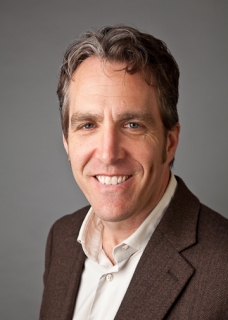Sociology faculty member’s new book examines the organic farming movement in the U.S.
 Brian Obach, professor of sociology at SUNY New Paltz, has released “Organic Struggle,” a new publication from MIT Press that looks at the past, present and future of the push to develop and institutionalize the practices and principles of sustainable agriculture.
Brian Obach, professor of sociology at SUNY New Paltz, has released “Organic Struggle,” a new publication from MIT Press that looks at the past, present and future of the push to develop and institutionalize the practices and principles of sustainable agriculture.
The book draws on Obach’s long-standing interest in environmentally-focused social movements, but in the case of organic farming he said he’s found particular inspiration in the landscape of the Hudson Valley and the passion and innovation of its residents.
“My interest in the sustainable agriculture movement was really first stimulated when I moved to New Paltz,” Obach said. “New Paltz is kind of a hub of activity around this issue, and so I was able to use local examples to illustrate different aspects of the national sustainable agriculture movement.”
In his time as a faculty member with the Department of Sociology, Obach has shared his enthusiasm for environmental issues with New Paltz students and colleagues. He teaches courses on social movements and environmental sociology, regularly takes students on excursions to local farms and helped develop and presently directs the Environmental Studies minor program of study for students pursuing environmentally-focused careers.
Even in researching for this book, Obach found ways to integrate the collective talents of the College community. He enlisted a small group of student interns to help with research, and also worked with KT Tobin, associate director of the Center for Research, Regional Education and Outreach (CRREO), to study local community-supported agriculture (CSA) programs.
Many of the book’s findings, however, are culled from Obach’s direct immersion into the organic farming movement. He met with farmers and advocates, participated in conferences and attended political meetings and workshops.
“I really feel like I got to know the inside story of organic politics: how policy gets made, and the strengths and weaknesses of the approach used by the movement,” he said.
The experience ultimately led Obach to conclude that while organic farmers, food sellers and advocates have made meaningful accomplishments in recent decades, future advances will only be achieved via a coordinated effort to change agricultural rules and regulations.
“It was crucially important to develop an alternative to conventional agriculture, and the movement has succeeded in perfecting organic farming techniques and proving they can work,” Obach said. “What needs to happen now is for the people involved to focus on enacting policy changes that will affect the agricultural industry as a whole.”
More information about “Organic Struggle” by Brian Obach is available at the website of MIT Press.
For students who are interested in getting involved with sustainable agriculture in the Hudson Valley, Obach recommends learning more about the Environmental Studies minor or joining Students for Sustainable Agriculture, a student organization that works to promote food production systems that are healthy for consumers, farmworkers and the environment.

